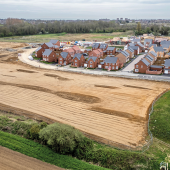The importance of independence for building engineers

Building engineers are often called to court as expert witnesses. But their independence must not be compromised, says Meera Shah, Content Editor and lawyer (non-practising) at Bond Solon
Building engineers act as expert witnesses in a variety of disputes. They can be instructed to investigate and report on issues such as: injuries; contract disputes; materials defects; structural failures; damage from fire, flood or explosion; and insurance claims. There are no legal requirements to becoming an expert witness, and the amount and type of professional experience required will vary. But expert witnesses are increasingly likely to be chosen because of specialist knowledge of a particular subject, and the number and type of cases they have worked on.
Formal training can also provide vital assurance that appointed experts are aware of their duties under Part 35 of the Civil Procedural Rules. Specifically, expert witnesses must understand their overriding duty to assist a court by providing “objective, unbiased opinions on matters within their expertise” that “overrides any obligation to the person from whom experts have received instructions or by whom are paid”.
Recent case law
Courts have commented on expert independence issues in several recent cases. While the key points are outlined below, this is no substitute for formal expert training to fully understand the expert witness role.
Conflicts of interest cast doubt on an expert’s independence. In Bux v General Medical Council [2021] EWHC 762, the most common forms of conflict of expert interest were identified as: a financial interest in the litigation outcome; a conflicting duty; or a personal (or other) connection with a party, which might influence or bias their evidence. Clearly, avoiding conflicts of interest should be central for expert witnesses.
Other issues relate to conduct. In the High Court of Ireland case of McKillen v Tynan [2020] IEHC 189, the applicant’s expert witnesses described their reason for giving evidence as being “for the purposes of supporting” the applicant’s claim. Their affidavits also contained near verbatim concluding paragraphs. The judge reiterated that it is critically important for experts to give independent advice so they are not perceived as hired guns.
In Palmer v Mantas & Anor [2022] EWHC 90 (QB), a judge criticised an expert’s report for its “judgemental and rather scathing comments”. The judge expressed concern that the claimant used language that went beyond “what is appropriate for an expert to employ and suggest[ed] a level of unconscious bias”.
In Patricia Andrews et al v Kronospan Ltd [2022] EWHC 479 (QB), the claimant was prohibited from relying on their expert’s evidence because the expert obtained input from the claimant’s solicitors when drafting their joint statement. This contravenes the rule that experts must not discuss or disclose the draft statement (CPR35.12; PD35). The expert’s approach “strongly suggest[ed] he regard[ed] himself as an advocate for the claimants [and not] an independent expert whose primary obligation is to the court”.
In contrast, Tylicki v Gibbons [2021] EWHC 3470 (QB) highlights where criticism of an expert’s independence can be unfounded. In this case, the claimant’s expert witness was accused of openly showing sympathy to the claimant and creating a report heavily influenced by the instructing solicitors. But the judge concluded the expert had not breached his overriding duty to the court.
Judges place great weight on the way in which witnesses give evidence. They assess the witness in front of them and always look for credibility, integrity and straightforward helpfulness. Experts are assumed to have read and understood the terms of their appointment, including their overriding duty to the court. The above cases emphasise the value of regular and up-to-date expert witness training.
For more, visit bondsolon.com







